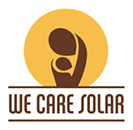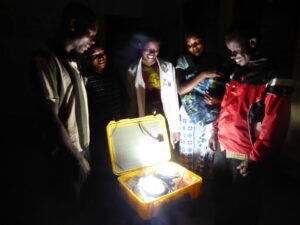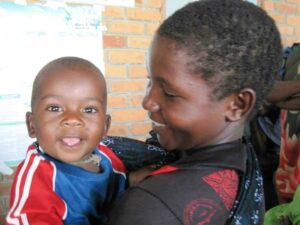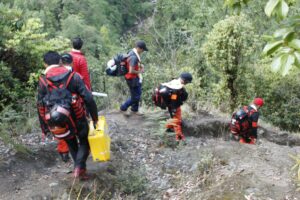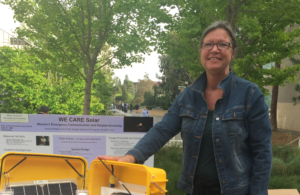 Today I am back in Nigeria – this time in Kano, a city of 10 million people and a maternal mortality rate that robs the lives of 1250 women for every 100,000 live births. I am visiting primary health care centers – the front line of maternity services for women seeking skilled care – as well as general hospitals – the second line of defense in the war against maternal mortality. The PHCs aim to provide four prenatal visits for normal pregnancies, and screen the population for high-risk cases that get referred to the hospitals. By ensuring that women with complications deliver in hospitals that have the capacity to perform c/sections, the primary health care centers help to reduce preventable deaths.
Today I am back in Nigeria – this time in Kano, a city of 10 million people and a maternal mortality rate that robs the lives of 1250 women for every 100,000 live births. I am visiting primary health care centers – the front line of maternity services for women seeking skilled care – as well as general hospitals – the second line of defense in the war against maternal mortality. The PHCs aim to provide four prenatal visits for normal pregnancies, and screen the population for high-risk cases that get referred to the hospitals. By ensuring that women with complications deliver in hospitals that have the capacity to perform c/sections, the primary health care centers help to reduce preventable deaths.
In Nigeria, as in many developing countries, a hospital delivery doesn’t assure a healthy outcome. Hospitals are often under-resourced in numerous ways: staffing may be inadequate, pharmacies face “stock-outs” (meaning they run out of particular medications), supplies may be low or missing, and equipment is often in disrepair. And, as I’ve discussed so many times, the lack of reliable electricity can translate to a lack of lighting at night, and an inability to safely perform obstetric care.
On this visit, I have been interviewing midwives and community health workers in advance of our solar installs to learn more about their experience delivering babies in darkness. Three stories I heard today illustrate the grim consequences of relying on flashlights, kerosene lanterns, and candles.
One community health officer described a breech delivery at night, and the danger of using candles. She was unable to see adequately under the dim luminance of a kerosene lantern and called to the patient’s husband to ask him to hold a candle for better illumination. This barely improved the lighting in the room and at two times the patient screamed out when hot wax dripped onto her skin.
Another health worker described a delivery in which the clinic power went off at the moment of a delivery. She couldn’t see what she was doing and called for her assistant. Not even a candle could be found in the facility. In desperation, the assistant lit a match and grabbed the calendar on the wall as a source of fuel. The health worker completed the delivery by the glow of the burning calendar.
And finally, in another clinic, a midwife told me about a breech delivery in the darkness. The baby’s body delivered first, and the head was trapped. She searched for a light, but the only flashlight in the facility was broken. The midwife grabbed a cell phone to utilize its small light, but the phone fell in a pool of blood on the delivery table, and no longer could function. By the time the delivery could be completed, the baby was stillborn.
A clinic supervisor summed the problem up in this way. “If there is no light, anything can happen. [The health worker] cannot see the person she is delivering. You can try to clamp the cord and clamp the wrong thing. You can mistakenly cut the woman. Even the health worker can be wounded, and if the patient is HIV positive, this is especially dangerous.” When I describe our plans for bringing Solar Suitcases to their clinics, they smile as they imagine a time when lighting will be assured. “The light you bring will help the health worker, it will help the patient…it will certainly help a lot.”
